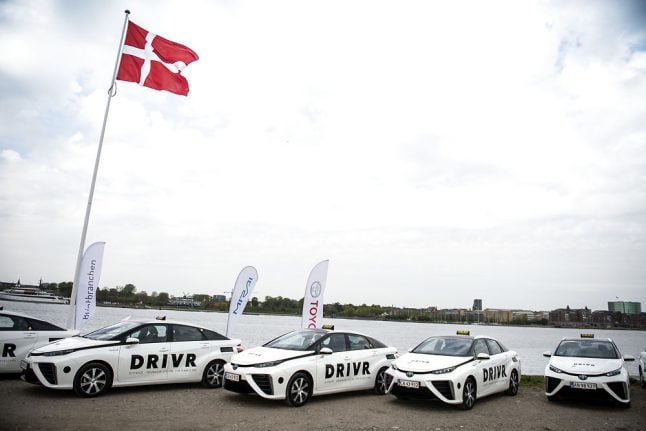An element of the government’s climate and air quality programme includes full conversion to zero-emissions taxis in the country’s cities by 2030. Energy specifications for taxis will be gradually updated so that no new vehicles emit CO2 or polluting particles from 2025, the Ministry of Transport, Building and Housing said in a press statement.
Minister for transport Ole Birk Olesen tried out one of the taxis on Tuesday as the new clean energy vehicles were launched in Copenhagen.
“This is not the first time I have taken a taxi, but I think this trip is a first nonetheless – it’s special to take a taxi in the city centre knowing you can do so without polluting,” Olesen said in the press statement.
“The government is very concerned with ensuring that both private and commercial vehicles become more environmentally friendly in coming years, so I am very pleased to see zero-emissions taxis on the road in Copenhagen.” Olesen added.
As part of the climate and air quality programme, the government also successfully passed an update to Denmark’s taxi laws (taxaloven). That provides a guarantee for 300 new taxi licences for electric or hydrogen-powered cars in the phasing-in period of the zero-emissions regulations.
As such, 100 of the 500 annual new taxi licenses in 2019 must be given to zero-emissions cars, increasing to 200 in 2020.
READ ALSO: Danish CO2 emissions expected to increase, despite government plan



 Please whitelist us to continue reading.
Please whitelist us to continue reading.
Member comments